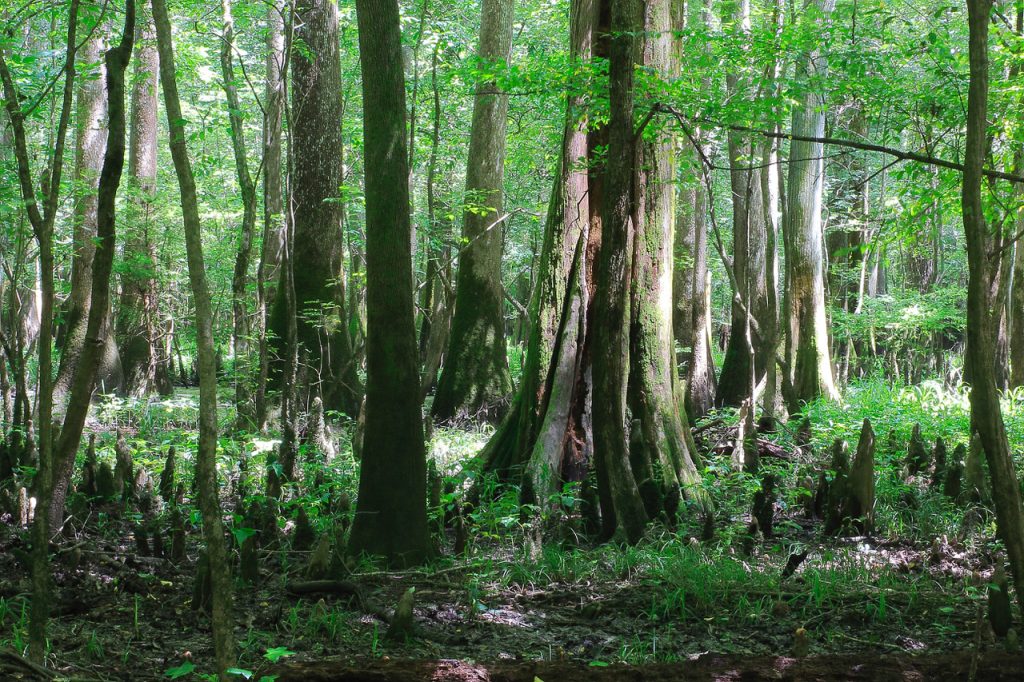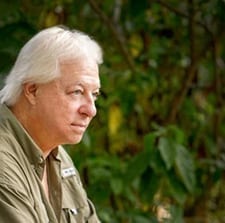Outdoor Men Of Letters
September 14, 2023By Tom Poland
Being a native Georgian, I didn’t grow up reading South Carolina writers. Nor do I recall reading Georgia writers, but I read a lot. Hemmed in as I was by strict parenting and Georgia woodlands, magazines and books connected me to a larger world. I read Outdoor Life and Field & Stream from cover to cover. North Carolinian, Robert Ruark, wrote a monthly column in Field & Stream, “The Old Man and The Boy.” In it he shared his experiences growing up along the North Carolina coast. He shared tales of his grandfather who taught him the art of hunting, fishing, and training of dogs. Ruark’s writing conveyed lessons learned in boyhood from his love for the outdoors.
When I wasn’t reading I was out roaming the woods behind my boyhood home. All those years ago of roaming woods and waters I had no inkling that I was destined to write of the outdoors and nature myself.
Four years after I moved to South Carolina, I went to work for the South Carolina Wildlife and Marine Resources Department, today’s DNR. There I kept hearing three names: Havilah Babcock, Harry Hampton, and Archibald Rutledge—South Carolina writers all.

Harry Hampton’s legacy of woods and waters columns lives on in Congaree National Park.
Babcock, I learned, taught English at the University of South Carolina for nearly 40 years. Students loved him but they weren’t the only fans. Readers beyond South Carolina loved this writer with the strange name, Havilah, for his tales of fly-fishing and bird hunting. Close friends and hunting companions referred to him as “Vilah,” as in vi-la. Collectors pay premium prices for his books today. Such is his reach.
Hampton, an avid outdoorsman, enjoyed the outdoors, hunting, and fishing. A reporter for The State newspaper, he shared his outdoor and wildlife adventures with readers in his “Woods and Waters” column. I’ve written before how his written words and speaking engagements advocated responsible outdoor behavior and the wise use of South Carolina’s natural resources. His words and conservation ethic built him a following among outdoorsmen and conservationists, and his work had a far-reaching influence on the public’s perspective on wildlife and natural resources.
Rutledge, he of the historic name, earned the adjective, “prolific.” Rutledge penned hundreds of stories and magazine features. Not content with that, he wrote books of poetry and anthologies. Most of his writings are about the Lowcountry of South Carolina, in particular, the natural beauty and wildlife of the Santee River delta. He wrote of a wild menagerie, for none of the species he wrote about suffered captivity. Among them were turkeys, mockingbirds, and wrens, gators and rattlesnakes, as well as ducks and deer. His nostalgic writing revealed his profound love of the land and its wildlife. Hampton Plantation inspired the works of Rutledge, South Carolina’s first poet laureate, 1934. The last private owner of the house, he lived there until 1969. Today the site is a National Historic Landmark and state historic site.
The three men are gone now but certainly not forgotten. It’s said that long after a writer passes he lives on through his words. Looking back to childhood, I like to think there’s a youngster out there reading the works of these men of letters, one destined to write about nature.
Of the three men, Harry Hampton’s work led to the creation of a national park. That’s a pretty stout legacy. And so is the Harry Hampton Wildlife Fund and all the good it does in his name. Hampton’s words do more than live on; they introduce others to the wonders of woods and waters. From outdoor photography to marine outdoor education, fishing, habitat preservation and more, the long reach of Hampton’s pen continues to do good things for the natural world that does so much for us.
Georgia native Tom Poland writes a weekly column about the South, its people, traditions, lifestyle, and culture and speaks frequently to groups in the South. Governor Henry McMaster conferred the Order of the Palmetto upon Tom, South Carolina’s highest civilian honor, stating, “His work is exceptional to the state.” Poland’s work appears in books, magazines, journals, and newspapers throughout the South.
Visit Tom’s website at www.tompoland.net
Email him at [email protected]















